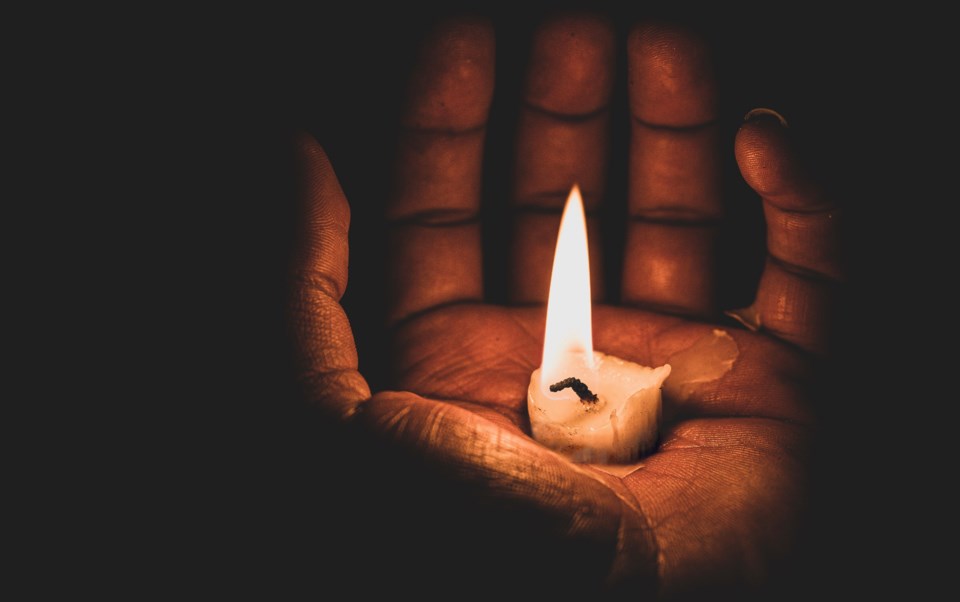In May, in Kamloops, BC, ground-penetrating radar allowed us, the living, to count the remains of 215 small children’s bodies.
And today, four days after National Indigenous People’s Day, Cowessess First Nation east of Regina, SK, announced they had found the remains of 751 more small bodies discarded in unmarked graves.
To call the sites where they were found "former residential schools” continues to spread lies.
These were not residential schools but mass child internment camps where the victims of genocide were discarded as if they didn’t matter, as if they weren’t loved.
Anyone who has ever felt their heart swell to call themselves Canadian, anyone who has ever cheered for Team Canada, waved the flag, worn the pin -- this news is for us. And we, Canadians, have a job, today and every day moving forward, to refuse to look away.
Those children were our children, too. This evidence was gathered for our benefit, too.
Indigenous survivors did not need a ground-penetrating radar to believe the testimonies they carried in their own living bones. We did.
Indigenous communities never forgot those lost children. We did.
Oh Canada, we stood on guard for thee. We maintained an impenetrable wall around our hearts, so our hearts could glow with innocence, so we could tell ourselves we were the true, North, strong and free. We rationalized to ourselves why we, whose ancestors hailed from distant shores, deserved to live in freedom, dignity and ease. At the same time, the original inhabitants went without, shuffled off the best land, out of sight, out of mind, disproportionately homeless, jailed, adrift, traumatized, disproportionately dead.
We were meant to be eating from a dish with one spoon. We were meant to share equally with open hearts the abundance of this land. We were meant to respect one another and live in peace.
We failed.
And we keep failing. We keep tending this wall around our hearts; we keep switching the channel to CNN, shrugging about another First Nation with no clean drinking water. We begrudgingly hear the land acknowledgements, taking up valuable time and space, as if they weren't meant for us. We imagined the Truth and Reconciliation Commission was for Indigenous people to recover from their problems and heal from their history.
We failed because we failed to pay attention. We didn't want to know who we were in all that or where we are in all this.
Perhaps we were too damaged by our journeys here to care.
The ghosts of 215, now 751 more, have been waiting for us to finally arrive. They are tugging at our sleeves now; their whispers are insistent: remember us, remember us.
There are more behind them, waiting patiently to be raised.
And so it is Canada Day in six days. And here we are, a genocidal nation that allowed the neglect and murder of innocent children to happen right here -- collateral damage of nation-building, unintended casualties perhaps, but forgotten no more.
Let us confront the horror in these numbers and allow the truth to wash over us.
When we lift those children’s bodies from the unceded territory of the Secwepemc and the Treaty 4 homelands of the Nehiyaw/Cree, Saulteaux, Dakota, Lakota, Nakota and Blackfoot, we can perhaps, at last, acknowledge we are all rooted in a sacred ancient land. We can be grateful that this common ground held those small bodies when their own parents could not, keeping their stories safe until Canada was ready to receive them with open hearts and arms.
The Oakville-based organization Grandmothers Voice has been making space for residential school survivors to be heard and listened to. You can hear their stories here. The closest residential school to Oakville was the Mohawk Institution, colloquially known as the Mush Hole because of the infamously insufficient rations its involuntary students were forced to subsist on. Survivors of the Mush Hole are working to raise the money they need to build a place for them to gather and heal. If you are in a position to contribute, please do so here.
Residential school survivors experiencing pain or distress resulting from their residential school experiences are encouraged to connect with the Indian Residential School Survivors Society that operates a 24-hour distress line at 1-866-925-4419.



